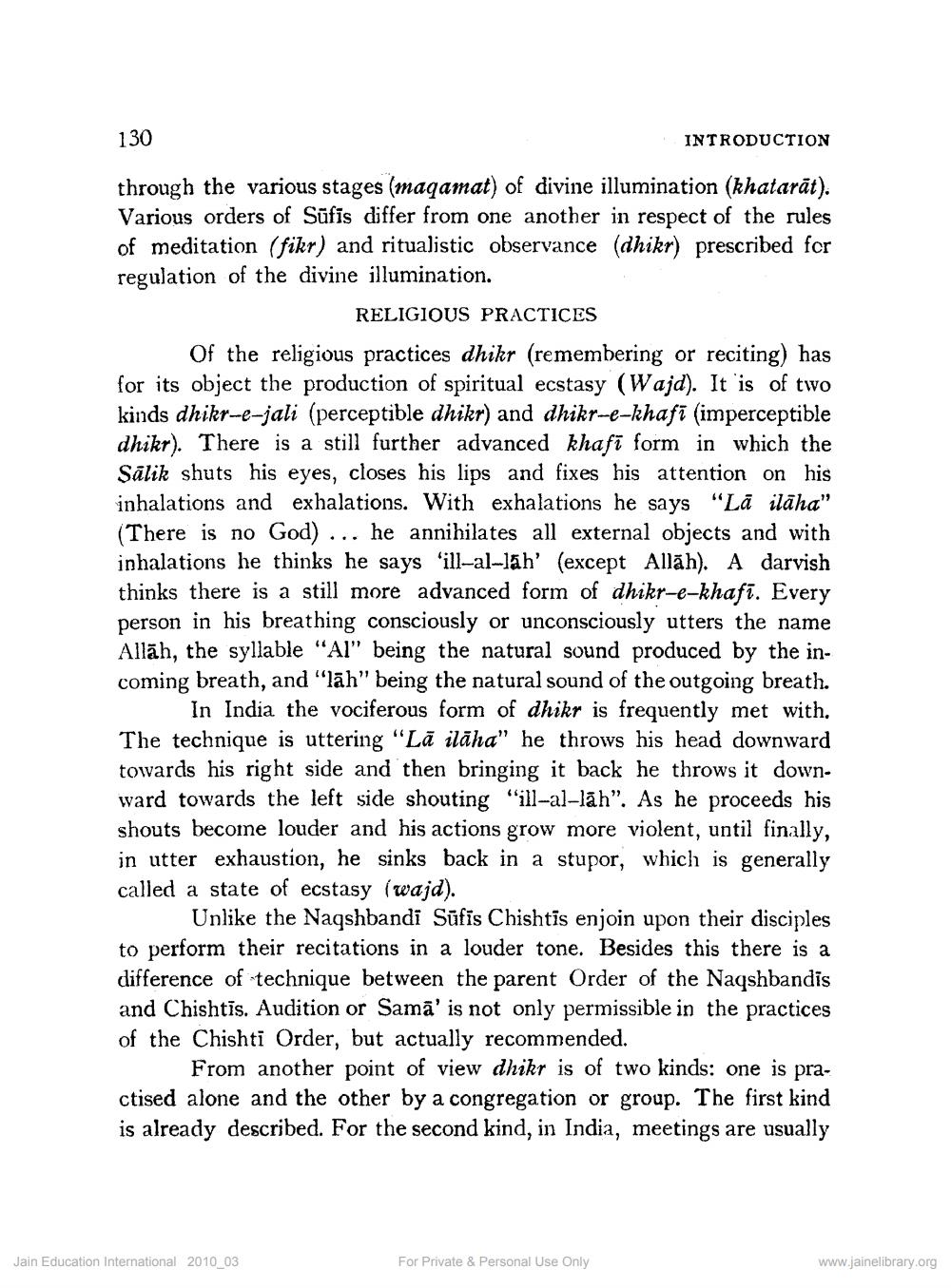________________
130
INTRODUCTION
through the various stages (maqamat) of divine illumination (khatarāt). Various orders of Sufis differ from one another in respect of the rules of meditation (fikr) and ritualistic observance (dhikr) prescribed for regulation of the divine illumination.
RELIGIOUS PRACTICES Of the religious practices dhikr (remembering or reciting) has for its object the production of spiritual ecstasy (Wajd). It is of two kinds dhikr-e-jali (perceptible dhikr) and dhikr-e-khafi (imperceptible dhikr). There is a still further advanced khafi form in which the Şalik shuts his eyes, closes his lips and fixes his attention on his inhalations and exhalations. With exhalations he says "La ilāha" (There is no God) ... he annihilates all external objects and with inhalations he thinks he says 'ill-al-lah' (except Allāh). A darvish thinks there is a still more advanced form of dhikr-e-khafi. Every person in his breathing consciously or unconsciously utters the name Allāh, the syllable "Al" being the natural sound produced by the incoming breath, and "lāh" being the natural sound of the outgoing breath.
In India the vociferous form of dhikr is frequently met with. The technique is uttering "Lā ilāha" he throws his head downward towards his right side and then bringing it back he throws it down. ward towards the left side shouting "ill-al-lāh". As he proceeds his shouts become louder and his actions grow more violent, until finally, in utter exhaustion, he sinks back in a stupor, which is generally called a state of ecstasy (wajd).
Unlike the Naqshbandi Sūfis Chishtīs enjoin upon their disciples to perform their recitations in a louder tone. Besides this there is a difference of technique between the parent Order of the Naqshbandis and Chishtīs. Audition or Samā' is not only permissible in the practices of the Chishti Order, but actually recommended.
From another point of view dhikr is of two kinds: one is practised alone and the other by a congregation or group. The first kind is already described. For the second kind, in India, meetings are usually
Jain Education International 2010_03
For Private & Personal Use Only
www.jainelibrary.org




